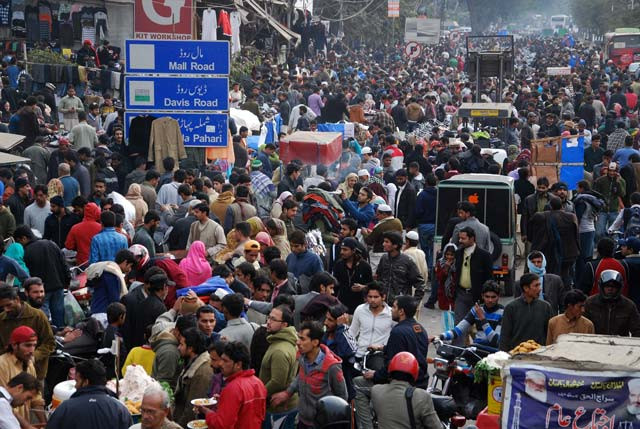The youth and sustainable population growth
Successive govts have failed to keep pace with our rapidly growing population

PHOTO: EXPRESS
Pakistan has a huge youth bulge, with nearly 60% of our population below the ages of 25 years. Unfortunately, due to poor planning and lack of proper government attention, they are confronted with many challenges. Successive governments have failed to keep pace with our rapidly growing population in terms of providing the commensurate number of schools, health facilities, and employment opportunities. As a result, 30% of children aged between five and 16 are out of school; the net enrollment rate at the secondary level is only 34%; one out of every six children of ages six to 12 are iodine-deficient and their intellectual capacity compromised; while 40% of children under five years of age are stunted.
But what gives one hope is that our youth are becoming more socially aware. They are now increasingly using various forums, including social media, to express their views on a wide range of topics. The recent student rallies organised in major cities to reinstate student unions reflects the growing student activism in the country, which must now be guided into positive channels. Foremost, we need a Greta Thunberg who can muster the audacity to ask our lawmakers why our Parliament has not wholeheartedly debated the implications of a rapidly increasing population or passed any legislation to facilitate access to family planning information and services, and why, while other Muslim countries have been able to reap the benefits of keeping their population size within manageable and sustainable limits, we have failed. If our youth can be sensitised and appropriately informed about the gravity of the population issue, they can not only influence the debate around this topic but also play a critical role in advocating its placement at the forefront of the government’s priorities, and enhance civil society accountability.
At the recent International Conference on Population and Development (ICPD) in Nairobi, Pakistan reaffirmed the principle that young people’s health and well-being can be discussed and decided upon only with their direct and full involvement and equal participation. We now need to engage in a meaningful dialogue with young people to mobilise them to become advocates for the population cause. We also need to educate them on important life skills related to responsible parenthood, which implies maintaining a balance between a family’s resources and size in order to ensure that children’s basic rights are met. In these efforts, we could even emulate an approach tried in Indonesia in which schoolchildren were used to educate their parents on family planning.
At the ICPD, Pakistan firmly pinned its hopes on its youth to play a meaningful role in stabilising our population growth rate to levels that do not compromise the wellbeing of our current and future generations. We now need to follow this up with strategic actions.
Published in The Express Tribune, December 25th, 2019.
Like Opinion & Editorial on Facebook, follow @ETOpEd on Twitter to receive all updates on all our daily pieces.














COMMENTS
Comments are moderated and generally will be posted if they are on-topic and not abusive.
For more information, please see our Comments FAQ